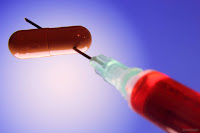Drugs:
Natural or synthetic substance with psychotropic effects raise related sensations of pleasure, urging for repetitive use leads to establish the permanence of this effect and prevent mental disorders (psychological dependence), or even physical (physical dependence), occurring in the judgment of this consumption, thus turned into need.
At a certain stage of this need is a servo (addiction) to the substance;
The drugged person or addict when it focuses on its concerns, neglecting the health and social consequences of compulsive consumption. In any case the word drugs should only be used for the purposes of drug or pharmacologically active substance.
Addiction:
The addiction is, in the ordinary sense, addicted to a drug. In the phenomenological sense, it is conduct that is based on repeated and irrepressible desire, despite the motivation and efforts of the subject to avoid it. The subject is engaging in addiction despite the acute awareness that he often abuses and loss of freedom of action, or their possibility.
The problems caused by addiction can be physical, psychological, relational, familial and social. The progressive degradation and continues at all these levels makes the return to a more controlled and more problematic behavior.
In psychoanalysis, the term addiction is used more broadly to the extent that it is more of an attitude intrapsychic, a mechanism, rather than the means to satisfy them. Parallel mechanisms may be involved in the determinants like anorexia nervosa.
Criteria for addiction
They are numerous and vary as much as the views and theoretical references that underlie them. But most of them are built on the model called "Bio-Psycho-Social" which referred to biological aspects (addictogenic potential of the product, possible genetic history) to the sociological aspects (context, family environment, school, etc.) and psychological aspects (personality of the subject).
For example, and according to the mechanistic model Aviel Goodman, American psychiatrist describes:
- Inability to resist the impulse of acting out.
- Increasing sensation of tension preceding the start of the behavior immediately.
- Relief or pleasure during the period.
- Loss of control from the beginning of the crisis.
Presence of at least five of the nine following criteria:
- Monopolisation of thought by the project addictive behavior.
- Intensity and duration of the most important episodes that originally desired.
- Repeated attempts to reduce, control or abandon behavior.
- Significant time spent preparing episodes, to undertake or recover.
- Commitment in behavior is such that the person can no longer perform basic actions (bathing, feeding) and leads to a divestment social, professional and family.
- Occurrence frequent episodes when the subject has to perform professional obligations, family or social.
- Continuation of the behavior despite the worsening social problems and despite knowledge of negative consequences.
- Marked tolerance, that is to say, need to increase the intensity or frequency to achieve the desired effect or diminished effect provided by a same intensity behavior.
- Restlessness, irritability and anxiety especially if the transition to the addictive act is delayed, prevented.

